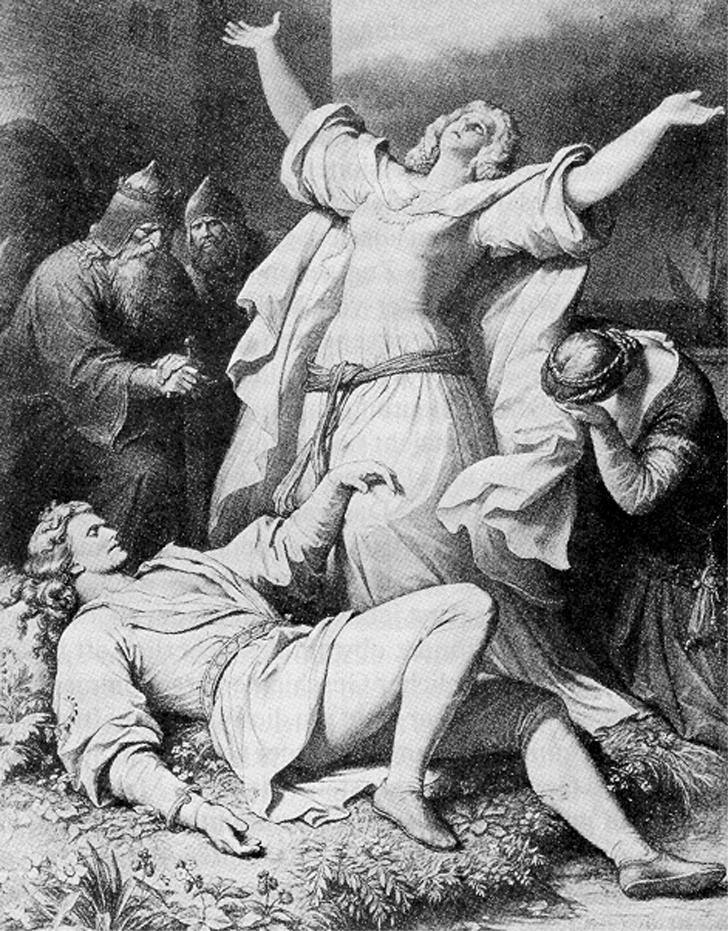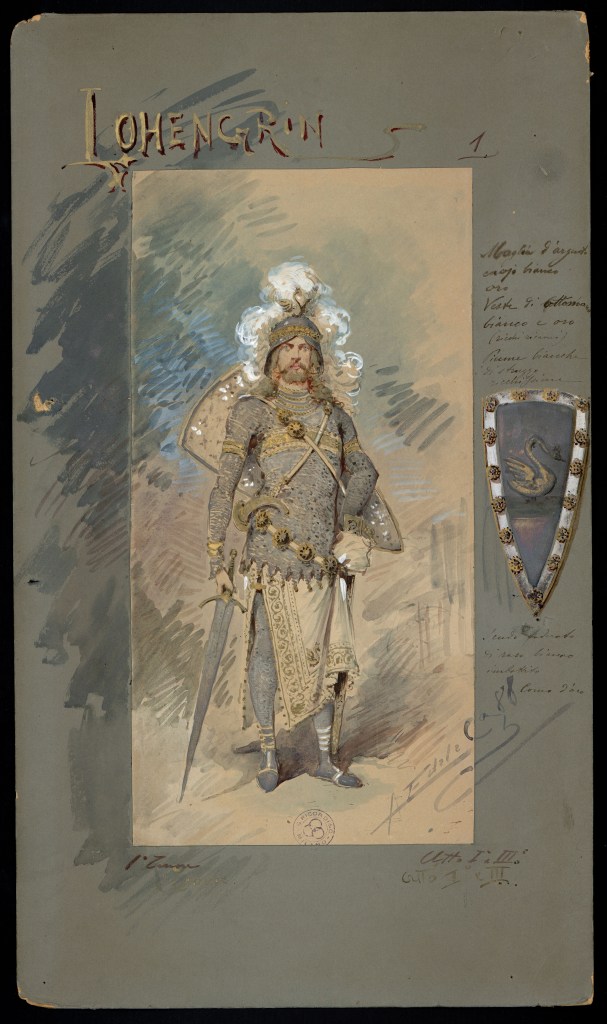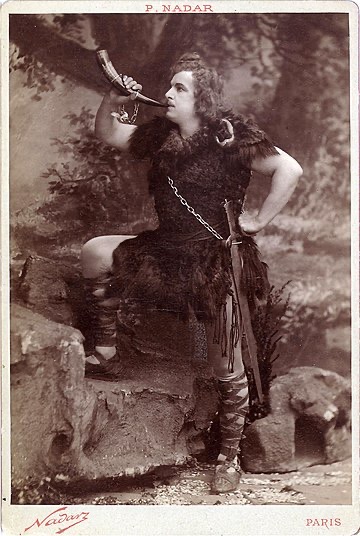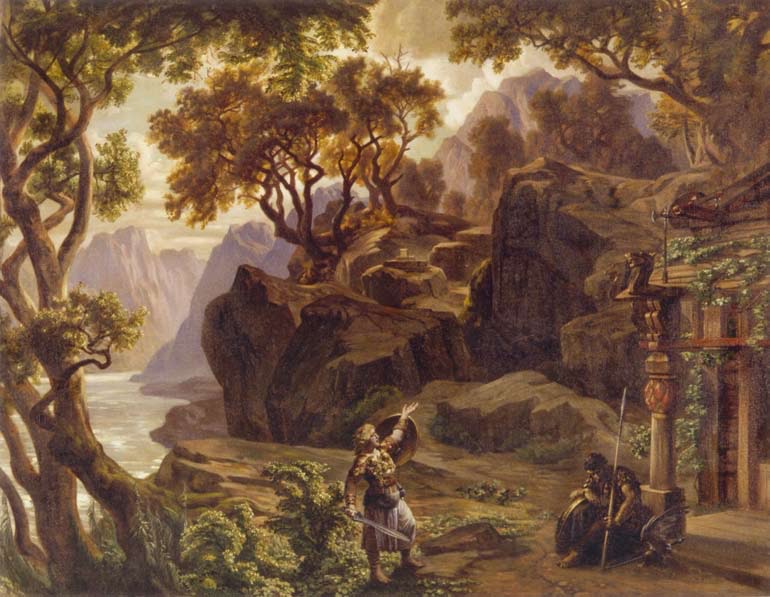Richard Wagner was born two-hundred and eleven years ago this 22nd of May. Beyond, and because of being one of the most controversial creative minds known to man, he has forever shaped our music, and influenced society in politics, art, and thinking. Thus, we celebrate the man - in joy, and in difficulties - by listening to several of his operatic works, and conversing about each afterwards - all on Clubhouse.
Each opera will be streamed in the club Opera, Blood, and Tears while the talks will take place at musicus, organicus.
You are all herewith cordially invited to join us by following the opera, and/or conversation links to each work.
All times are EST (New York time)

Tristan und Isolde
3 Acts, 255 minutes
May 8th
Opera / 1 pm
Conversation / 6 pm
Image: The “Liebestod” in a painting by Wilhelm von Kaulbach, 1866
Summary: Act I – King Marke’s henchman Tristan is returning to Cornwall with the Irish princess Isolde, Marke’s betrothed. Isolde’s first husband died at Tristan’s hand, and although she nursed the wounded Tristan, she now hates him for what he did. She orders her servant Brangäne to prepare a poison but Brangäne substitutes a love potion. Each drink it, expecting death but instead fall in love.
Act II – While Marke is away on a night-time hunt, arranged by the treahrous Melot, who is also in love with Isolde, the lovers meet for an extended tryst. Tristan and Isolde express their passion in powerful, erotically charged music but daylight comes, the hunting party returns, and Tristan is mortally wounded by Melot.
Act III – The dying Tristan who has been taken back to Kareol, his castle in Brittany, by the faithful Kurwenal, waits for Isolde to come to him. She comes, followed by King Marke but Tristan dies in her arms. As she sings the “Liebestod”, in which eternal love is consummated by death, Isolde is transfigured, then dies herself.

Die Meistersinger von Nürnberg
3 Acts, 255 minutes
May 14th
Opera / 1 pm
Conversation / 6 pm
When Wagner decided to write a comedy in 1861, he turned away from the high drama of the Ring cycle to focus on the small tale of a competition organized by the Meistersingers, societies of singers who guarded the integrity of the German song tradition.
Act I – In 16th-century Nuremberg, the knight Walther von Stolzing is in love with Eva, Pogner’s daughter. Pogner will give her in marriage to whoever wins the singing contest of the Meistersingers’s guild.
Act II – Walther does not know the rules of the contest but the (real-life) cobbler and poet Hans Sachs coaches him, and helps him fend off he town clerk Beckmesser who also wants to marry Eva.
Act III – Walther, singing a song composed by Hans Sachs, wins the contest and gains Eva’s hand in marriage; he is then enrolled as a full member of the Meistersinger’s guild.

Lohengrin
3 Acts, 210 minutes
May 17th
Opera / 1 pm
Conversation / 6 pm
Image: Costume design for Lohengrin Act I, III (1888), by Alfredo Edel
Summary: Based on a German epic poem, Lohengrin tells of the rivalry between Telramund and Lohengrin over the succession to the dukedom of Brabant, and the love of Elsa. Lohengrin’s famous swan (on which he arrives to meet Elsa) turns out to be Gottfried, the missing heir to the dukedom.
Der Ring des Nibelungen (The Ring of the Nibelung)
— an epic music drama cycle
Rooms for The Ring of the Nibelungen are postponed.
New dates will be shared soon.
In its full form, Der Ring des Nibelungen, Wagner’s most ambitious masterpiece, is actually a complete opera festival in itself, talking place over three days, and a preliminary evening.

Das Rheingold
1 Act, 150 minutes
May
Opera / 1 pm
Conversation / 6 pm
Image: The Rhinemaidens and Alberich
Summary: The dwarf Alberich steals the Rhinemaidens’ gold to make a magic ring. The giants, Fafner and Fast, agree to exchange Freia — the goddess whose golden apples keep the gods young — for the gold Alberich has gained through the power of the Ring. Fafner kills Fast, taking the Ring.

Die Walküre
3 Acts, 225 minutes
May
Opera / 1 pm
Conversation / 6 pm
Image: Walküre (Waltraute) by Carl Emil Doepler, 1876
Summary: The two mortal children of the god Wotan, Siegmund and Sieglinde, fall in love. Sieglinde’s husband kills Siegmund, although Brünhilde the Valkyrie tries to protect him. Sieglinde is pregnant with Siegfried, the savior of the gods. To punish Brünnhilde for trying to save Siegmund, Wotan puts her to sleep on a rock ringed with flames.

Siegfried
3 Acts, 255 minutes
May
Opera / 1 pm
Conversation / 6 pm
Image: Jean de Reszke as Siegfried (c. 1896)
Siegfried, the son of Siegmund and Sieglinde, succeeds in forging his father’s shattered sword. He goes to Fafner’s lair (the giant is now a dragon), and, killing Fafner, gains the Ring. Finding Brünnhilde on her rock, he wakes her with a kiss.

Götterdämmerung
Prologue and 3 acts, 255 minutes
May
Opera / 1 pm
Conversation / 6 pm
Image: Stage design by Josef Hoffmann for original production in 1876 – Act II, Scene 2
Siegfried, in love with Brünnhilde, gives her the Ring but his enemies Günther and Hagen give him a drugged potion. He brings Brünnhilde, with ring, from her rock. Hagen kills Siegfried, and Günther as he fights for the Ring. Brünnhilde builds a pyre for Siegfried, and burns herself and Valhalla. The Rhine overflows and the Rhinemaidens drown Hagen and take back the Ring.
Source of opera summaries: The Complete Classical Music Guide
